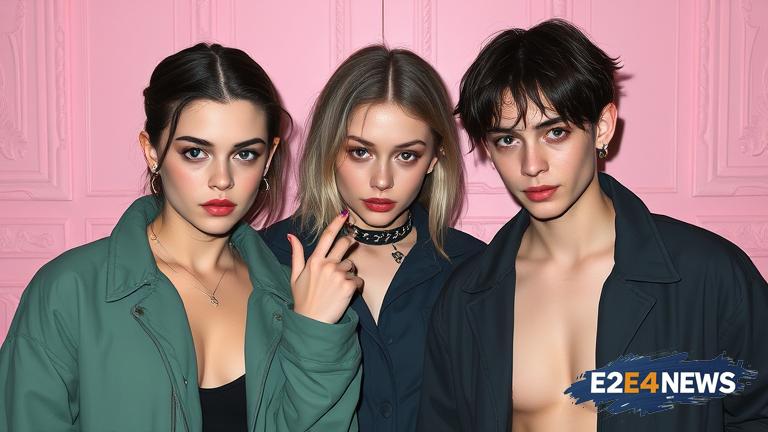In a shocking turn of events, two popular Russian TikTok influencers have been arrested by authorities for creating and sharing provocative content on the platform. The incident has sparked a heated debate about the regulation of social media and the limits of free speech. According to reports, the two influencers, who have not been named, were detained by police after they posted a video that was deemed to be explicit and offensive. The video, which has since been removed from the platform, allegedly featured the two creators engaging in a provocative dance routine that was deemed to be inappropriate for a family-friendly audience. The arrest of the two influencers has sent shockwaves through the Russian social media community, with many users expressing outrage and disappointment at the heavy-handed approach taken by the authorities. Some have argued that the arrest is a clear example of censorship and an attack on free speech, while others have defended the move, arguing that it is necessary to protect the moral fabric of society. The incident has also raised questions about the role of social media companies in regulating content and the need for clearer guidelines and regulations. TikTok, which has become a hugely popular platform in Russia, has faced criticism in the past for its handling of explicit content and its failure to adequately regulate user-generated material. The company has responded to the criticism by introducing new community guidelines and moderation policies, but some argue that more needs to be done to address the issue. The arrest of the two Russian influencers is not an isolated incident, with several other social media creators facing similar charges in recent months. The trend has sparked concerns about the growing crackdown on free speech and the increasing use of censorship as a tool to control online discourse. In Russia, the authorities have been actively working to regulate social media and online content, with a number of laws and regulations introduced in recent years to curb the spread of explicit material and extremist ideology. The move has been criticized by human rights groups and free speech advocates, who argue that it is a clear attempt to stifle dissent and limit the freedom of expression. Despite the controversy, the Russian government has shown no signs of backing down, with officials arguing that the measures are necessary to protect the country’s moral and cultural values. The incident has also highlighted the growing tension between social media companies and governments, with many countries seeking to exert greater control over online content and user activity. As the debate continues to rage, one thing is clear: the arrest of the two Russian TikTok influencers has sparked a major controversy that will have far-reaching implications for social media regulation and free speech. The incident has also raised questions about the responsibility of social media companies to regulate content and the need for greater transparency and accountability. In the meantime, the two influencers remain in detention, facing charges that could result in significant fines and even imprisonment. The case has sparked a major outcry, with many calling for the charges to be dropped and for the influencers to be released. As the situation continues to unfold, it remains to be seen how the incident will be resolved and what implications it will have for the wider social media community. The Russian government has faced criticism for its handling of the incident, with many arguing that the arrest is a clear example of overreach and an attack on free speech. The incident has also sparked a wider debate about the role of social media in modern society and the need for greater regulation and oversight. In conclusion, the arrest of the two Russian TikTok influencers has sparked a major controversy that will have far-reaching implications for social media regulation and free speech. The incident has highlighted the growing tension between social media companies and governments, and has raised questions about the responsibility of social media companies to regulate content and the need for greater transparency and accountability.
